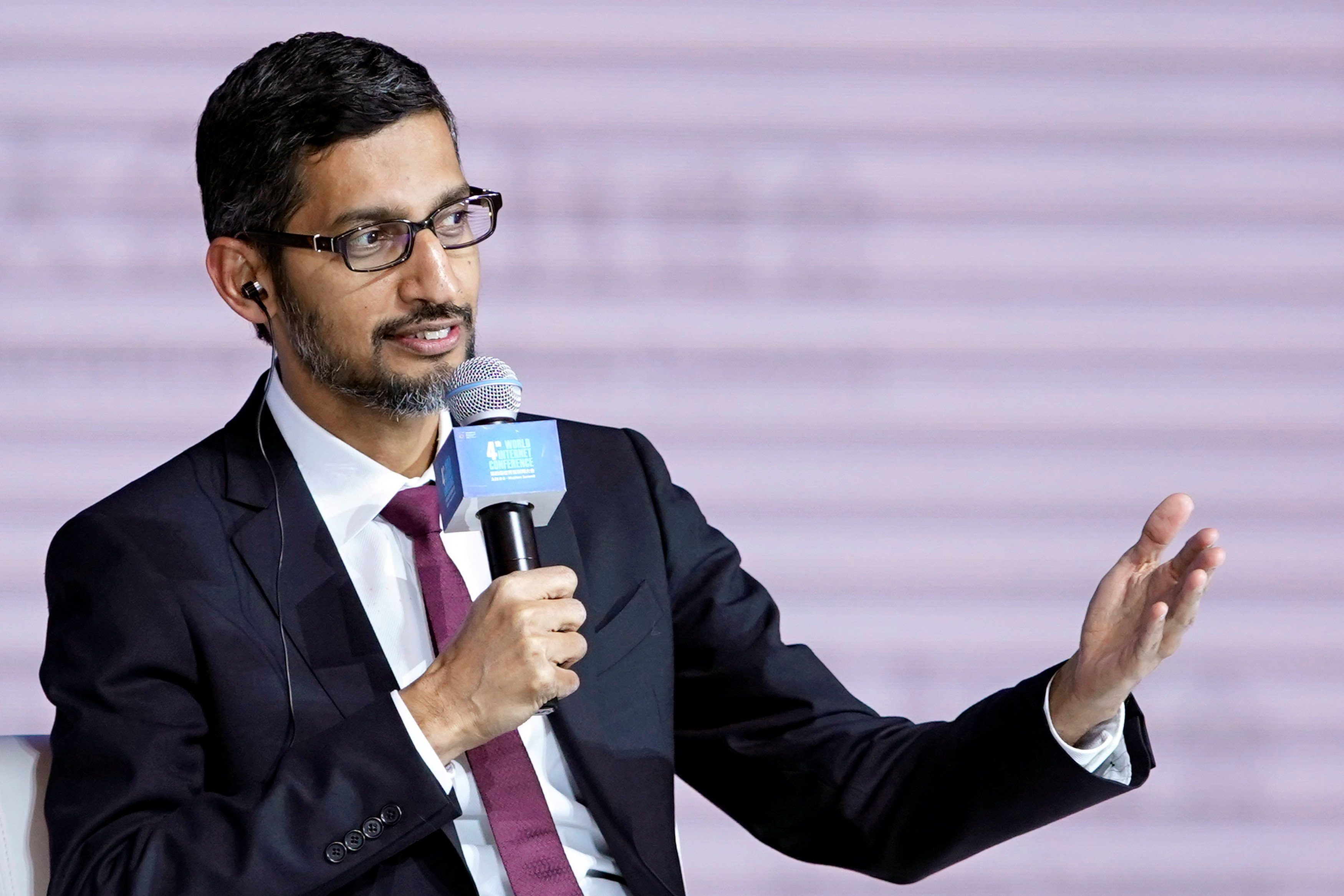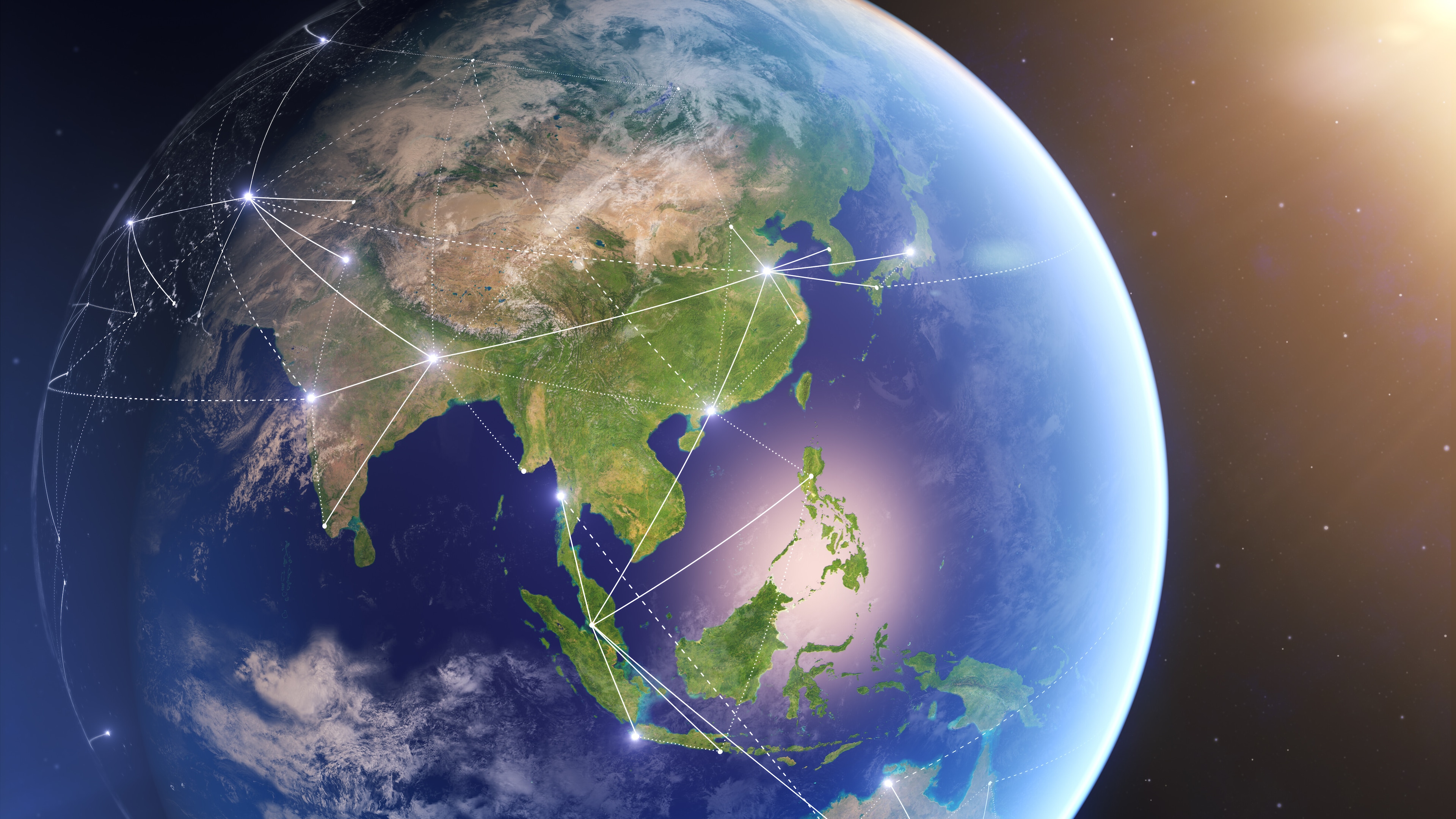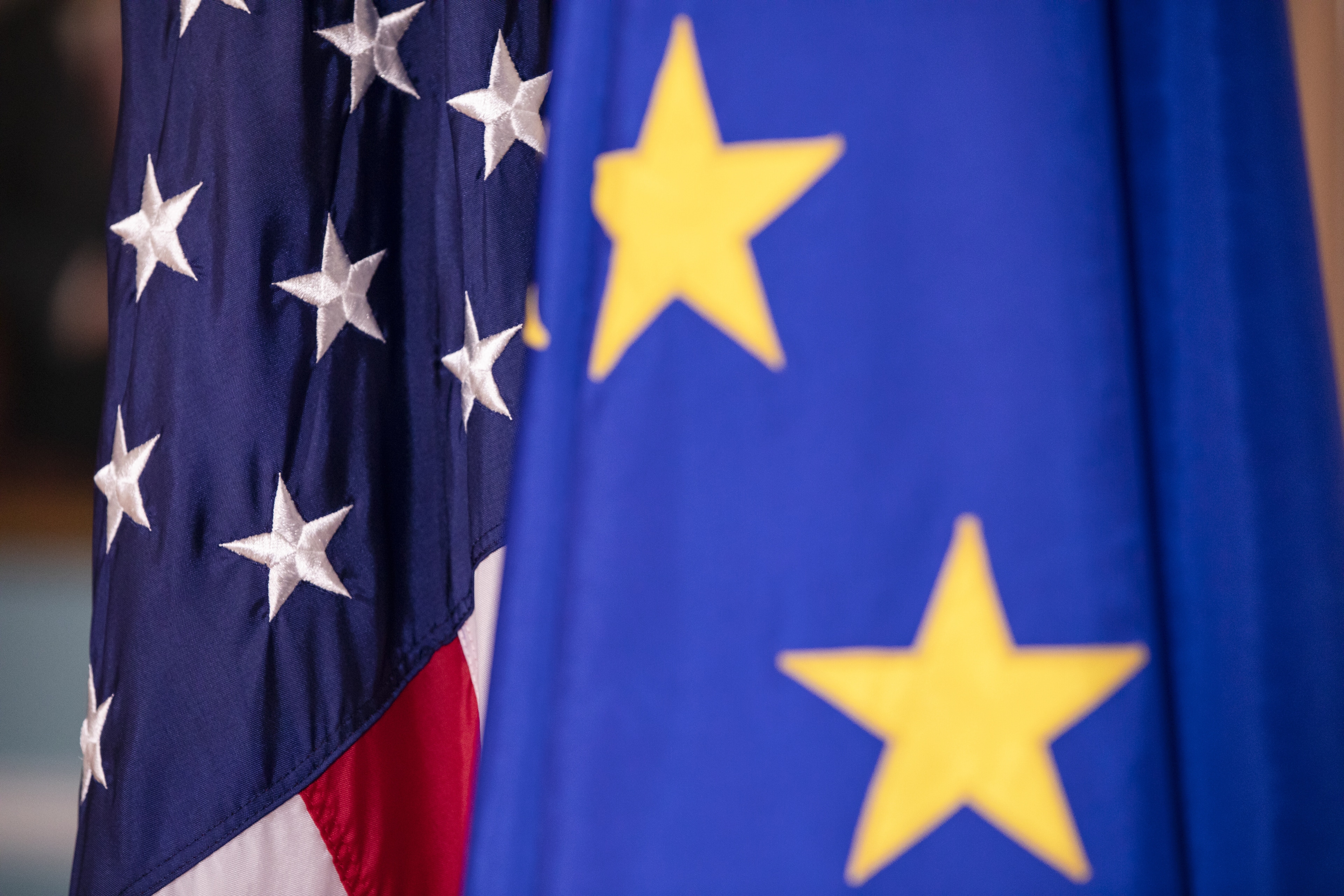11 books Davos leaders think you should be reading

From Sundar Pichai to Erna Solberg and Steven Pinker, Davos participants name the volumes that inspire them.
Image: Reuters/Denis Balibouse
Stay up to date:
Economic Progress
My most memorable moments at Davos can be summed up in conversations. Whether about new economic paradigms that put people and planet at their centre, or how identity and mental health intersect, or the future of food in a world expanding its meat consumption, or how we can find meaning in a world without jobs.
One question I raised with a lot of people at the meeting was this: which is the one book that has really inspired or moved you, and played a meaningful role in your journey? Here are some of the responses:
1. At a gathering focused on the sustainable development goals, I ran into the Norwegian prime minister, Erna Solberg, one of the seven female co-chairs of this year’s Davos. She was deeply inspired by the feminist science-fiction novel Shikasta by Doris Lessing.
2. Sundar Pichai, the CEO of Google, had a hard time picking just one, so we constrained the question to books he’d read in the last year. He recommends The Gene by Siddhartha Mukherjee – a wide-ranging book that takes a deep look at our very building blocks as we gain the powers to manipulate them.

3. Karuna Rana is a Global Shaper from Mauritius, and leads a coalition of young people from small island states who are raising awareness and taking action on climate change. She highlighted the impact of Conversations with God by Neale Donald Walsch. It helped her develop a critical mindset of questioning everything and always probing deeper, she said.
4. Christiana Figueres, the climate optimist largely credited with bringing the world’s leaders together to cooperate on climate change, was at an event where scientists shared the current state of play with business people who pledged their commitment to the cause. She deeply believes in the power of love, she said, and is inspired by Buddhist philosophy; she recommended Thich Nhat Hanh’s Love Letter to the Earth.

5. In a conversation with several Nobel laureate economists about the state of the world, Angus Deaton highlighted the tragedy of the opioid crisis in the United States. He offered up the book The Moral Economists by Tim Rogan as a work that shouldn’t be missed.
6. Sociologist Arlie Hochschild, who was on a panel on technology and trust – about the economic forces hidden in plain view that drive many of the technological trends we see today – cited a book she found visionary: Robert Reich’s Saving Capitalism.
7. Christie Peacock is a social entrepreneur who has worked with farmers across Africa for many decades. She brought up the concerns of rural farmers while leading a discussion on the future of food. She said that Being Mortal by Atul Gawande helped her find her way through an experience of deep personal loss.
8. Winnie Byanyima of Oxfam, who had shone a light on inequality just ahead of the Davos meeting by announcing that 82% of the world's wealth last year went to the top 1% of the population, had to sleep on it before she found an answer that satisfied her. At first she had mentioned the author Zora Neale Hurston’s depictions of the black struggle, but she settled on The Second Sex by Simone de Beauvoir.

9. Wikipedia founder Jimmy Wales, meeting with the Global Shapers youth community at Davos for a frank discussion, noted that the book Your Money or Your Life by Vicki Robin shed light on the important things in life.
10. Kate Raworth is the author of the book Doughnut Economics, which deals with a similar question but on a larger, paradigmatic scale. She said the book The Divide by Jason Hickel had left a mark on her.
11. While talking about brain-computer interfaces and what roles they might play in the future, psychologist Steven Pinker highlighted the book The Beginning of Infinity by David Deutsch as one that particularly stood out for him.
Don't miss any update on this topic
Create a free account and access your personalized content collection with our latest publications and analyses.
License and Republishing
World Economic Forum articles may be republished in accordance with the Creative Commons Attribution-NonCommercial-NoDerivatives 4.0 International Public License, and in accordance with our Terms of Use.
The views expressed in this article are those of the author alone and not the World Economic Forum.
Forum Stories newsletter
Bringing you weekly curated insights and analysis on the global issues that matter.
More on Economic GrowthSee all
Li Dongsheng
July 31, 2025
Charlotte Edmond
July 30, 2025
Naoko Tochibayashi
July 30, 2025
Matt Watters
July 29, 2025
David Elliott
July 28, 2025
Michael Wang
July 28, 2025





